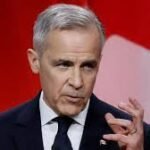The International Monetary Fund (IMF) has raised concerns over the Nigerian government’s plan to continue paying fuel and electricity subsidies, warning that the cost of these subsidies could skyrocket to a staggering 3 percent of the nation’s Gross Domestic Product (GDP) in 2024, up from just 1 percent in the previous year.
In a recent report, the IMF said fuel subsidy alone could balloon to a colossal N8.4 trillion in 2024, a substantial increase from the N1.85 trillion spent in 2023.
Additionally, the electricity subsidy being paid for customers under Band B, C, D, and E is expected to reach N540 billion by the end of 2024, further compounding the financial strain on the government’s resources.
Despite President Bola Tinubu’s initial declaration to end fuel subsidies during his inauguration on May 29, 2023, reports suggest that the government has resumed paying these subsidies to keep fuel prices stable and mitigate the impact of high inflation and exchange rate depreciation on Nigerians.
The IMF acknowledged the government’s efforts to triple electricity tariffs for high-usage consumers on Band A feeders, representing 15 percent of the 12 million customers who account for 40 percent of electricity usage. However, the organization cautioned that “with pump prices and tariffs below cost-recovery, implicit subsidy costs could increase to 3 percent of GDP in 2024 from 1 percent in 2023.”
The IMF emphasized that these subsidies are not only costly but also poorly targeted, with higher-income groups benefiting more than the vulnerable population. It urged the Nigerian government to tackle these implicit fuel and electricity subsidies once the safety net has been scaled up and inflation subsides.








